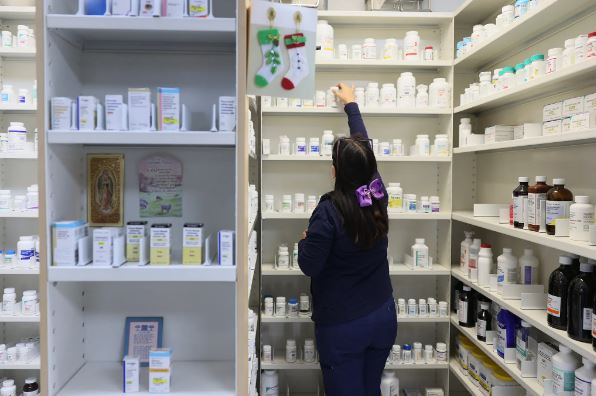In a groundbreaking move, the Food and Drug Administration (FDA) has given its approval for Florida to import millions of dollars worth of medications from Canada, signaling a significant departure from decades-long objections raised by the pharmaceutical industry. This policy shift is seen as a potential breakthrough in the ongoing struggle to regulate and reduce drug prices in the United States.
The FDA’s decision, conveyed in a letter to Florida on Friday, allows the state to import medications at substantially lower prices than those available in the U.S. Individuals in the country can already purchase directly from Canadian pharmacies, but the new approval opens the door for states to buy medicines in bulk from Canadian wholesalers for programs like Medicaid, government clinics, and prisons.
Florida anticipates saving up to $150 million in the first year of the program, focusing on importing medications for conditions such as H.I.V., AIDS, diabetes, hepatitis C, and psychiatric disorders. Other states have also expressed interest and applied to the FDA for approval to establish similar programs.
Despite the approval, challenges remain on the horizon. Some drug manufacturers have agreements preventing the export of their medicines, and the Canadian government has taken steps to restrict the export of drugs facing shortages.
Maryse Durette, a spokeswoman for Health Canada, emphasized the limited capacity of Canada’s drug supply to meet the demands of both American and Canadian consumers. She expressed skepticism about bulk importation being an effective solution to address high drug prices in the U.S.
The Pharmaceutical Research and Manufacturers of America (PhRMA), the major lobbying organization for the pharmaceutical industry, is expected to challenge Florida’s plan legally. In a statement, PhRMA labeled the FDA’s decision as “reckless” and warned of considering all options to prevent its implementation.
The FDA’s approval marks a significant shift in a long-standing issue. Congress had passed a law allowing drug importation two decades ago, but concerns about safety delayed its implementation. In 2020, then-President Donald J. Trump advanced the law, allowing states to submit importation proposals for FDA review. President Biden continued the momentum in the following year.
Florida had sued the FDA over what Governor Ron DeSantis termed a “reckless delay” in approving their request. The recent approval stems from that lawsuit, with a federal judge setting a deadline for the FDA to act on the state’s application.
While Florida celebrates the decision, the FDA commissioner, Dr. Robert Califf, emphasized that the agency would carefully evaluate additional state applications to ensure they align with the program’s objectives and offer significant cost savings without compromising safety.
Eight other states, including Colorado, Maine, New Hampshire, New Mexico, North Dakota, Texas, Vermont, and Wisconsin, have laws allowing state drug importation programs and are seeking FDA approval or planning to do so.
Importation from Canada enjoys broad support, with a 2019 poll by KFF indicating nearly 80 percent of respondents favoring it. However, some experts argue that it doesn’t address the root cause of high drug prices, such as the lack of direct negotiation between the federal government and drugmakers.
As the 2024 presidential election approaches, candidates are eager to claim credit for efforts to reduce drug prices. President Biden highlights the Inflation Reduction Act, enabling Medicare to negotiate prices directly with drugmakers, while Governor DeSantis emphasizes Florida’s import plan.
While Florida’s approval is a step forward, challenges from drugmakers in Canada and the broader issue of pharmaceutical pricing remain. Critics argue that negotiating drug prices directly with manufacturers would be a more direct approach to lowering costs. The debate over drug pricing in the U.S. continues, and the FDA’s decision on Florida’s importation program is likely to have lasting implications.

